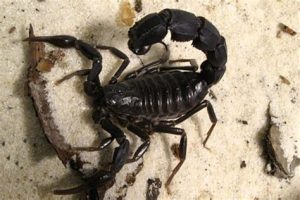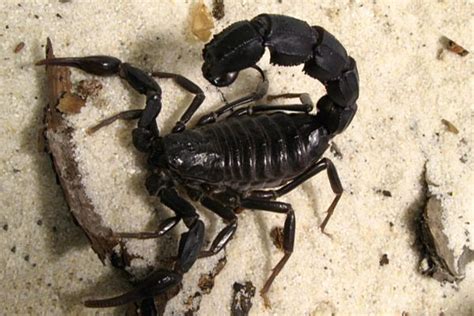
ALI AL SALEM AIR BASE, Kuwait — Army veterinary technician Spc. Joseph Neitz shined the ultraviolet beam of his blacklight on the desert sands, yielding a fluorescent turquoise glow that confirmed the presence of his quarry.
The scorpion-hunting former Marine had encountered one of the world’s most dangerous species of the stinging arachnid.
But the Arabian fat-tailed scorpion did not run away. Instead, it raised its pincers and arched its venomous tail at Neitz, as if to challenge him. Stars and Stripes
Troops have captured at least 300 of the creatures at the base over those six months, he added.
Neitz hopes the military will supply anti-venom to the base after seeing the data.
The base does not have the anti-venom because of a belief that the scorpion population there had diminished over the last five years, he said. In fact, while dangerous to humans it’s generally not fatal, but the troops are concerned for the service dogs who could be killed by a sting.
There have been around nighttime 100 hunts since the spring and there’s now a waiting list with hundreds or personnel seeking to bag a scorpion or a camel spider during their tour to Kuwait.
